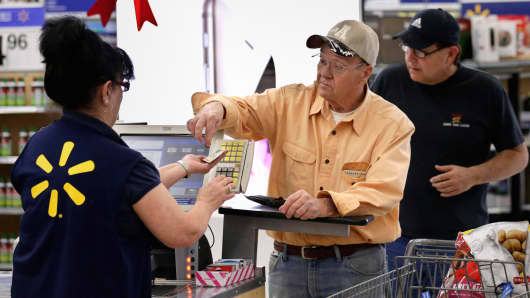That upbeat mood comes in sharp contrast to businesses, which have sharply cut spending on investment in new equipment since late last year. Those spending cuts have created a major drag on the overall U.S. economy, which grew just 1.1 percent in the quarter that ended June 30.
Businesses are jittery for a lot of reasons, not least because of the uncertainty surrounding the November elections.
But there are other forces dampening business spending, including a strong dollar, a slowdown in global trade and weakness in corporate profits.
"I don't see that nervousness disappearing even after the elections," said economist Greg Daco at Oxford Economics. "So I don't expect a rapid bounce in business investment."
That means the only thing standing between the U.S. and another recession is the American consumer. For now, it looks like household spending will continue to hold up, according to Joel Naroff, founder of Naroff Economic Advisors, as long as disposable income keeps rising.
"Much of that has likely come from the strong gains in payrolls rather than a rise in the income of those currently working," he said. "Still, money is money, and the added funds will power spending going forward."
At some point, economists expect to see a slowdown in the rapid pace of hiring: nearly 200,000 jobs a month in the latest quarter.
Even as payroll growth slows, economists like Daco expect disposable income to continue to rise. That's because, with unemployment now down to 4.9 percent, companies will find it harder to acquire and keep skilled workers.
"Companies will have to pay more to retain their good employees and avoid them switching jobs for higher wages," he said.
That's already happening, according to Monday's data.



